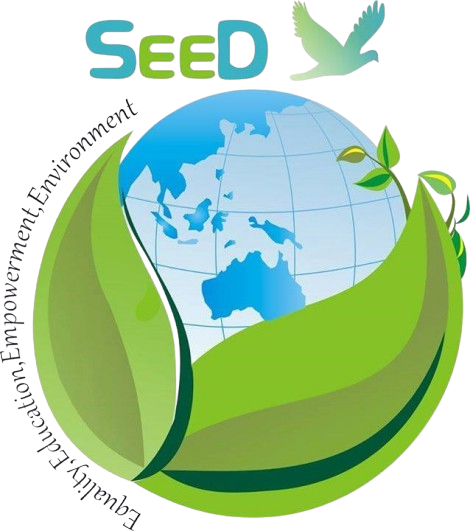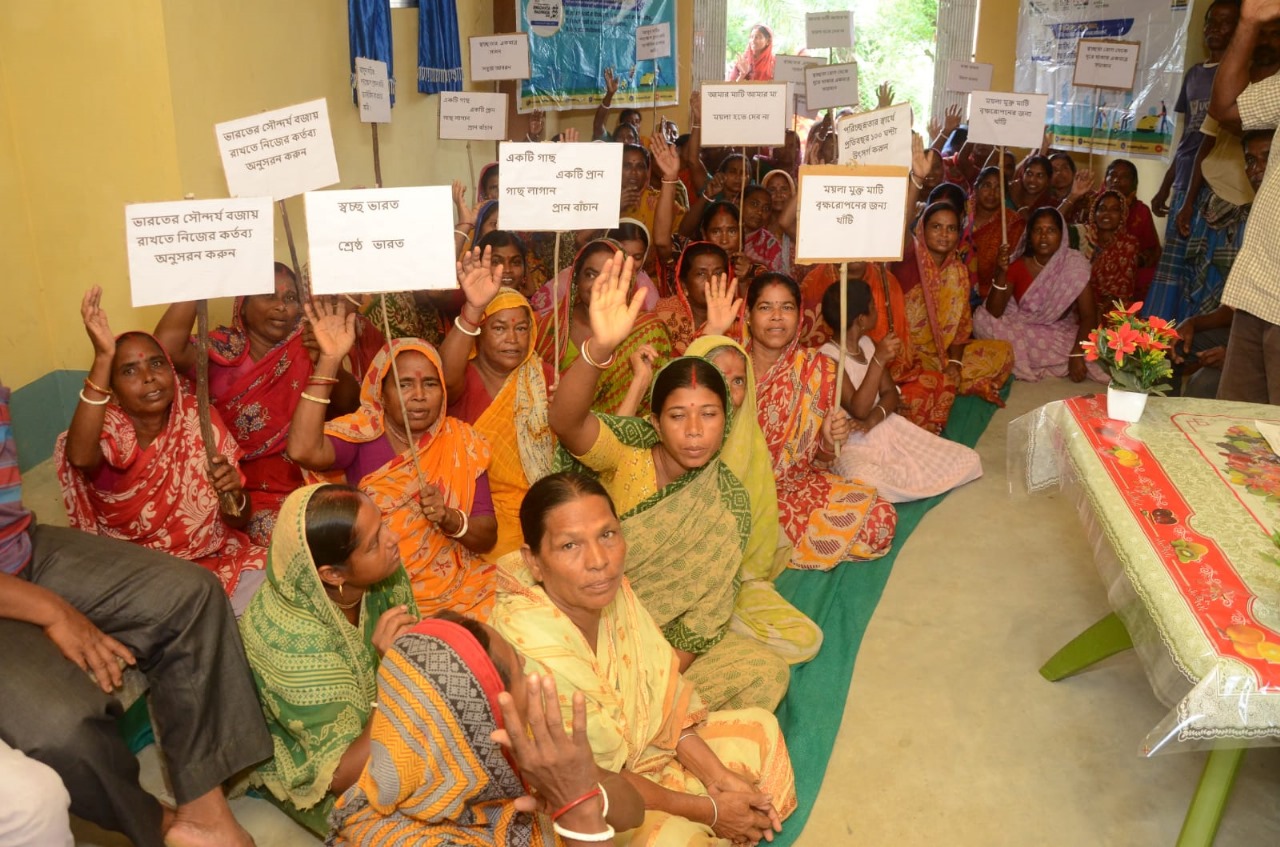






SEED, with support from BPCL’s CSR initiative, implemented the “Swachhta Pakhwada” programme over two consecutive years in 2023 and 2024, focusing on climate-sensitive WASH interventions in the highly saline-intruded Ghoramara Island. The campaign aimed to instill hygiene practices, reduce waterborne diseases and build awareness on health, sanitation, plastic pollution and menstrual hygiene through a community-centered and multi-pronged approach. Activities included awareness sessions in schools and villages, rallies with school children and residents and interactive workshops led by doctors, ASHA workers, and environmental educators. Sessions addressed key issues such as safe drinking water, hand hygiene, waste segregation and proper disposal of sanitary products. In 2024, the campaign also included pond cleaning drives and distribution of 250 hygiene kits containing essential sanitation materials in eco-friendly cloth bags. Participants took pledges to practice and promote cleanliness and safe hygiene habits within their households and neighborhoods



Subscribe to the SEED Newsletter — and be part of the change!